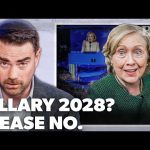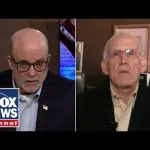The “Tesla Takedown” protests have erupted nationwide, targeting Tesla dealerships and CEO Elon Musk for his controversial role in the Trump administration’s Department of Government Efficiency (DOGE). Musk, who has spearheaded efforts to slash federal spending and dismantle agencies, has become a lightning rod for criticism. While peaceful demonstrations have been the backbone of this movement, troubling acts of vandalism and violence have marred its message, raising questions about the limits of activism in modern America.
The protests, organized as part of a grassroots campaign, aim to hit Musk where it hurts—his wealth tied to Tesla. Demonstrators have called for boycotts of Tesla vehicles and stock divestment, framing their actions as a stand against Musk’s perceived authoritarian influence. However, some activists have crossed the line into criminal behavior, with incidents including arson, vandalism, and even Molotov cocktail attacks on Tesla properties. These actions have prompted federal investigations and led the FBI to classify certain incidents as domestic terrorism. While free speech is a cornerstone of American democracy, these violent acts undermine the legitimacy of the movement and threaten public safety.
Critics argue that Musk’s policies within DOGE have fueled frustration among federal workers and activists. His aggressive push to reduce government expenditures has led to layoffs in critical sectors like nuclear safety and air traffic control. Yet, the backlash against Musk has also exposed the dangers of unchecked propaganda and mob mentality. Some protestors have resorted to hateful imagery, including Nazi symbols painted on Tesla vehicles—a disturbing escalation that distracts from legitimate policy concerns. Such tactics not only harm innocent Tesla customers but also tarnish the broader movement’s credibility.
These protests highlight the growing polarization in American discourse. While peaceful assembly is a constitutional right, violence and property destruction cannot be condoned. Musk has dismissed many protestors as “paid actors,” though evidence for such claims remains dubious. Regardless of whether these allegations hold water, the chaos surrounding Tesla dealerships underscores the need for civility in activism. Conservatives have long championed law and order, and this situation serves as a stark reminder that societal change must be pursued within legal boundaries.
As tensions escalate, authorities are working to restore order while preserving the right to protest peacefully. The FBI’s intervention signals that violent actions will not be tolerated, but it also raises concerns about government overreach in monitoring dissent. For Musk and Tesla, this turbulence comes at a time when the company faces declining sales and stock performance—a potential consequence of both external protests and internal mismanagement. Ultimately, Americans must decide whether their grievances with Musk justify such extreme measures or if they can find more constructive ways to express their discontent.




